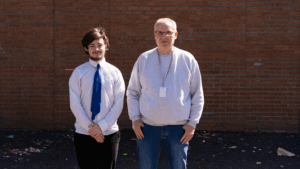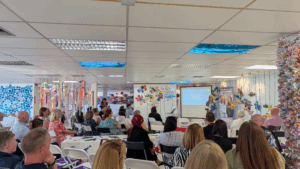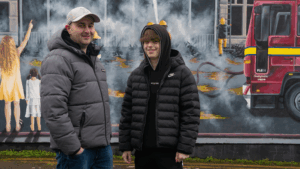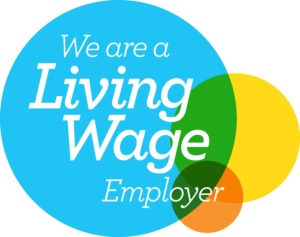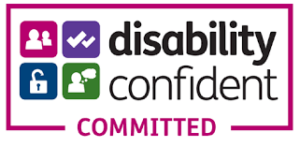The Herald has today published an article outlining the outstanding commitment of Glasgow’s Universities to Young Glasgow Talent’s young people.
There have been many headlines about the poorest pupils facing ‘shocking’ barriers to University since the publication of the Sutton Trust report. Focus has turned from the fact that the most disadvantaged Scots are 4 times less likely to get into University to the restriction on number of places caused inadvertently by free tuition fees. There is universal agreement that improving widening access is a critical part of our fairness and social mobility policies. Whilst there has been improvement with the increase in college access there is much more that needs to be done to ensure Scotland does not lag the rest of the UK in access to University.
Although there is now evidently a disconnect between policy and practice, grass roots initiatives such as Young Glasgow Talent are bearing fruit and creating significant impact on widening access. All of Glasgow’s 6 Universities recently came together with MCR to train mentors and develop new widening access taster programmes for Glasgow’s most disadvantaged young people as well as share best practice.
Our founder, Iain MacRitchie, commented:
“We were delighted to bring together the city’s Universities and have a real meeting of minds and purpose. We have policies, a motivation to change and a deep rooted sense of fairness in Scotland. However it is reaching every young person with the support, confidence and aspiration they need that matters and the only way to narrow the attainment gap. Each and every young person matters and we know after 8 years of front line experience the transformational impact of 1:1 support with focused talent and skill development. It’s about building bridges with committed relationships, access to multiple experiences and wider social networks. It’s why we are so driven to have a committed mentor and talent tasters as part of the school curriculum for every disadvantaged young person.
Our education policies should be driven by the principle that the greater the disadvantage a young person experiences the greater the support and all we have to offer. Our country is rich in opportunities but not yet in access to them. The outcomes for care experienced young people best illustrate this despite us being their parents.
With MCR Talent Tasters traditional programmes of work, college and university experience are being replaced with tasters that have been designed with and for young people. It is about engaging younger and wider in reach and appeal. The amazing by-product is with the MCR taster model, they are much more sustainable and easier for each organisation to deliver. The Herald have recently hosted talent taster and saw at firsthand the benefits for all involved. We are very passionate in the belief that what has worked in some East End schools will scale and through impact will become national.
MCR Pathways is now being formally adopted as a core part of Glasgow City Council’s education system.
A clear aim that a number of Glasgow’s leading institutions now have, is to set a positive example of what is possible to narrow the attainment gap and reverse the trend. MCR brought together all of Glasgow’s Universities to work collaboratively and train and educate an initial cohort of over 60 mentors and staff on access, articulated routes, admissions processes and other practicalities. These details matter and are often obscure and difficult to understand amongst the professionals far less potential students. Glasgow Caledonian University, Glasgow School of Art, Glasgow University, Royal Scottish Conservatoire, Strathclyde University and the University of the West of Scotland have committed to supporting the city’s care experienced and most disadvantaged young people.
Through the Young Glasgow Talent programme, the institutions have pledged to engage YGT youngsters and ensure they are supported through all available pathways to university. The immediate difference is that their support will be more targeted to a younger cohort of young people in S2 and S3 when critical subject choices are being made and pathways set. With the direct support of their mentors, school staff, the MCR team and the institutions. each young person will get what they need at precisely the time that they need it.”
The event began with an overview of the application process, scholarships and the programmes currently being delivered in YGT’s secondary schools. Each institution highlighted all the articulation routes available to Glasgow’s young people. Pathways to university include via college, with adjusted grades and with additional categories of support, depending on students’ situations. Event attendees also chose two workshops specific to their young person’s aspirations. Engaging in interactive sessions at the event allowed mentors to understand crucial information and the differences in approach.
Each institution cemented their commitment to ensure wider access for the young people. A University’s admissions criteria and articulation routes vary and can change year to year. It can be difficult to understand and keep up with developments. By coming together for this event, the city’s Universities have ensured the maximum understanding of what is available. This is a fundamental element of YGT’s drive to help young people to find, grow and use their talents.
With further support by the institutions, Young Glasgow Talent has produced a comprehensive Guide detailing every higher educational taster and experience available within each of YGT’s schools. All of this has provided the foundation to improve aspirations and post school destinations. Every young person will receive the Guide and explanations through their mentor. Bringing each institution together to combine and simplify the information means significantly greater understanding for YGT young people.
Many more developments are also in place to improve the outcomes and close the attainment gap. Representatives of the six universities meet regularly with MCR Pathways throughout the year to discuss school outreach and improvements. There is now a forum for representatives of the six universities and a calendar of outreach activities in place. Plans for the remainder of 2016 include visits to Glasgow Caledonian University for YGT’s S2 pupils. Forty young people representing over 30% have already signed up and will attend an engaging and fun session on the key GCU subjects areas.
Thirty-six S3s pupils from eight schools attended a Strathclyde University Pre Summer Experience Induction which prepared them for two days and evenings of university tasters over the summer. This number is a threefold increase on previous years and more evidence of the impact of building confidence and aspiration in the most disadvantaged young people.
Other young people are being supported individually by the Glasgow School of Art and Royal Scottish Conservatoire to develop their talents and their chances of gaining entry to the creative industries. This underlines that the young people have the interest and ability at that earlier age but just need the support to see it through as they progress through school.
Cross Section of University Feedback on the MCR event and MCR:
Rachel Hyslop, Glasgow Caledonian University:
“It was important for our institution to get involved in today’s event. It’s crucial to spread the word about the support we can offer care experienced young people! We hope that by working together, more young people can make informed choices about their futures, as well as finding out about the support to help gain a place at university and succeed once there.
Dr Veena O’Halloran, Director of Student Experience and Enhancement Services, University of Strathclyde:
“Strathclyde has a proud history of supporting disadvantaged young people’s journeys into higher education and on to fulfilling careers. We are pleased to be working with the MCR Pathways team to continue to build the widest and most effective range of initiatives to provide opportunities for students from all backgrounds.”
Eona Craig, Head of Widening Access & Lifelong Learning, Royal Conservatoire of Scotland:
“We know the transformational power of the arts and at RCS we want to ensure that every access point possible is made apparent to care experienced young people, their advocates and mentors. Whether the interest is social or educational we know we can help signpost some amazing creative and cultural opportunities.”
Rickie McNeill, Glasgow School of Art:
“We have already seen some great results through MCR Pathways referring pupils to our programme. We are really keen to continue and extend this relationship. Today will hopefully further promote the idea that everyone with the potential to study and excel in a creative education has an equal chance to do so.”“I thought this was a really valuable event and would be very keen to be involved again in the future.”
Mentor Feedback:
George McKay, Mentor at Lourdes Secondary School:
“To get to know and understand the pathways to Higher Education is very important to me in relation to my young mentee. More information and more knowledge! The value of the universities’ involvement and support at today’s event the information I found out today will help me to help my mentee in the very important forthcoming year. To be able to pass on invaluable information to my mentee from the universities is terrific!”
Anne MacFarlane, Mentor at Saint Roch’s Secondary School:
“ ALL the universities are working together for the good of care leavers. It’s also good to be able to compare what different universities are offering. I think it’s very important that universities recognise the talent and potential that care leavers have and are willing to help them realise this. Today’s event was very informative. (The institutions) answered lots of questions in an excellent manner.”
Kerr Armstrong, Mentor at Springburn Academy:
“It shows commitment and reassures me that all our Further Education/Higher Education institutions understand the importance of supporting disadvantaged but talented young people into Further Education/Higher Education. The early links they provide from S3 – campus tours, summer workshops, knowing who the named person is at each institution – will bring value to the young person I mentor. The benefits of today’s event meeting fellow mentors. Listening to good news stories and case studies .”
Jane Williamson, Mentor at Lochend Community High:
“The training session this evening was really beneficial. You managed to pack loads of information into the session – hand-outs for follow up info/ contacts are really good. I thought the format of workshops worked really well too. I’m looking forward to running though the handbook with my mentee.”
Can you help a young person realise their full potential and be defined by their talent not their circumstances? More disadvantaged young Glaswegians are signing up for mentors to help them overcome barriers and inequality to be all that they can be. Can you help them? We have a variety of pathways to university, college or employment and a diverse range of mentors. One hour a week and a willingness to put a young person first are all you need. You’ll make and experience a life-changing difference in helping a young person to find, grow and use their talents. MCR Pathways will provide all the training and support you need to make a huge difference. For more information or to register, please go to www.youngglasgowtalent.org or email info@mcrpathways.org. We can’t wait to hear from you.
MCR Pathways is a pioneering partnership of the MCR Foundation and Glasgow City Council and actively supported by an increasing number of Glasgow’s key organisations including The Herald, Wheatley Group, Glasgow Life, University of Strathclyde, Santander, Glasgow Kelvin College, SECC and Glasgow Chamber of Commerce.
